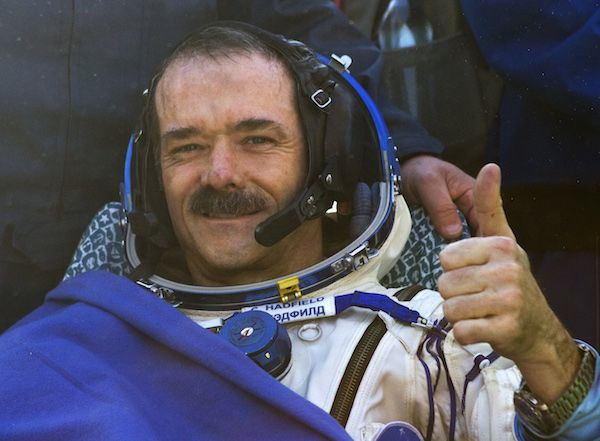Here's What Happens When You Cry In Space [VIDEO]

KEY POINTS
- Former astronaut Chris Hadfield conducted the demonstrations during his time aboard the ISS
- He squirted drops of drinking water on his face to simulate tears
- The astronaut showed the difference between crying in space and crying on Earth
The former commander of the International Space Station (ISS) previously released a video to demonstrate what would happen if a person cries in space. In the video, the astronaut showed what happens to tears in low-gravity conditions.
Chris Hadfield is a retired astronaut from the Canadian Space Agency. He served as the commander of the ISS for Expedition 35, which launched in 2012.
During his stint aboard the giant orbiting station, Hadfield made various videos showing what life in space looks like. In one of these videos, he demonstrated what would happen to the tears of a person crying in space. Since the astronaut admitted that he can’t cry on command, he used a bag filled with drinking water for his demonstration.
In the video, Hadfield squirted a few drops of water onto his left eye to simulate crying. On Earth, tears would normally roll down a person’s cheek. However, due to the microgravity conditions on the ISS, the simulated teardrops just stayed over and around Hadfield’s eye.
After squirting more drops of water, the astronaut’s tears began to form a big blob of water moving around his face.
“My eye is full of tears, but you can see it just forms a ball on my eye,” Hadfield said in the video. “In fact, I can put more water in and so if you keep crying, you just end up with a bigger and bigger ball of water in your eye until eventually it crosses across your nose and gets into your other eye or evaporates or maybe spreads over your cheek or you grab a towel to dry it up.”
As noted by the former ISS commander, if a person continuously cries in space, his or her tears will eventually form a huge ball of water that will just move around the face. This can be easily removed by wiping it off using a cloth or towel.
“So yes I’ve gotten things in my eye, your eyes would definitely cry in space but the big difference is tears don’t fall,” he said.
© Copyright IBTimes 2025. All rights reserved.




















